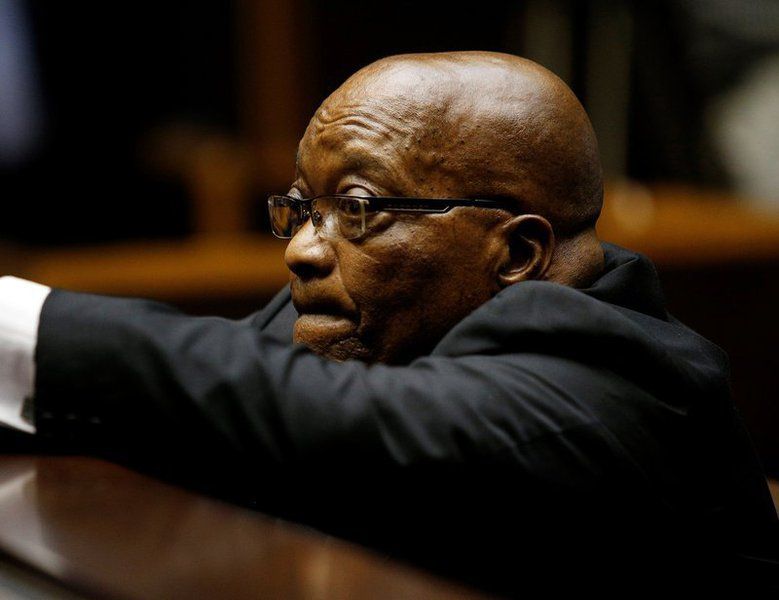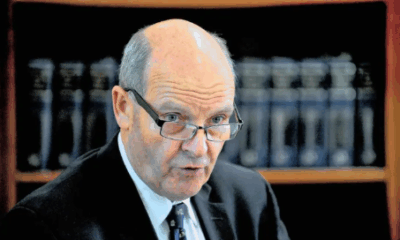News
Zuma risks losing his presidential pension as court orders him to repay R28.9 million in legal fees

Zuma faces fresh financial blow after R28.9 million court order
Former president Jacob Zuma is facing another major legal and financial setback and this time, it could cost him his presidential pension.
The Gauteng High Court has ruled that Zuma must personally repay R28.9 million, plus interest, to the state for legal fees funded during his long-running arms deal corruption trial. The judgment adds yet another chapter to Zuma’s long list of courtroom battles, many of which have spanned more than two decades.
Zuma Foundation: “We’re awaiting legal briefing”
The Jacob G. Zuma Foundation has responded cautiously to the ruling, saying it will wait for guidance from Zuma’s legal team before commenting further.
“The JG Zuma Foundation will await briefing by the lawyers before making any comments on the judgment,” said Mzwanele Manyi, the foundation’s spokesperson.
The statement reflects a familiar posture from the former president’s camp, measured silence following yet another unfavourable court decision.
How Zuma ended up with a R28.9 million bill
This latest ruling stems from a legal battle between Zuma and the Presidency along with the State Attorney’s Office, who sought to recover taxpayer money spent on his personal legal defence.
According to the court, the state had repeatedly demanded repayment, but Zuma did not respond to the letters or make any effort to settle the debt.
Zuma’s lawyers, however, argued that because the charges originated during his time as a public official including allegations tied to the 1999 arms deal the state should be responsible for covering his legal costs.
That argument didn’t hold up. The Supreme Court of Appeal (SCA) had already ruled back in 2021 that Zuma was not entitled to taxpayer-funded legal support and must reimburse the government. Wednesday’s judgment simply formalised the process for recovery.
What the court said
In his written ruling, Judge Anthony Millar explained that the total sum owed by Zuma was calculated in two stages:
-
The first demand, made in October 2021, was for R18.2 million.
-
A second amount of R10.7 million was added later, bringing the total to R28.9 million.
Because the payments were demanded at different times, the court also ruled that interest would accrue separately on each amount a detail that could push the total owed even higher if Zuma delays repayment.
Could Zuma’s pension be at risk?
The Democratic Alliance (DA), which first initiated legal action to recover the funds, welcomed the ruling and said they expected full repayment, even if it meant tapping into Zuma’s presidential pension.
“Mr Zuma has benefited from R28.9 million in taxpayer money over the past seven years,” said DA spokesperson Willie Aucamp. “We look forward to seeing him repay what he owes South Africa, starting with this first amount, plus interest.”
Aucamp added that the DA expects the Presidency to report back to the court on the recovery progress to ensure transparency.
The Economic Freedom Fighters (EFF), too, have long demanded accountability in the case, arguing that public funds should never have been used to defend Zuma’s private corruption charges in the first place.
A familiar battlefront for Zuma
This is not the first time Zuma has been ordered to personally shoulder the financial burden of his legal woes. The former president has faced a string of judgments against him since leaving office in 2018, many linked to corruption allegations, state capture investigations, and defamation cases.
For many South Africans, this ruling feels like a long-awaited moment of accountability a rare instance where a former head of state is told to pay back the money, literally.
On social media, reactions were swift and divided. Supporters of Zuma accused the courts of political persecution, while critics argued that the decision was a long-overdue victory for taxpayers.
What happens next
Zuma’s legal team is expected to review the judgment and determine their next steps, possibly appealing the order or negotiating repayment terms.
However, with interest already accruing and the state entitled to attach assets (including pension benefits) for recovery, the pressure is mounting.
If Zuma fails to comply within 60 days, as requested by the DA, he could face asset seizures or other enforcement measures.
A reckoning years in the making
The R28.9 million repayment order is more than a legal technicality, it’s a symbolic turning point in South Africa’s struggle with political accountability.
For a man once at the centre of power, the ruling is a reminder that the shadow of corruption charges still looms large and this time, it may reach straight into his wallet.
{Source: The Citizen}
Follow Joburg ETC on Facebook, Twitter , TikTok and Instagram
For more News in Johannesburg, visit joburgetc.com


























